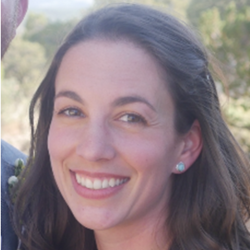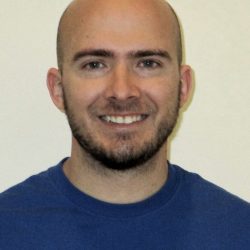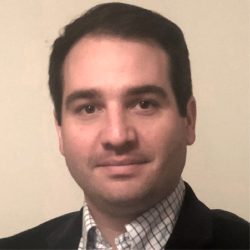EPIC is pleased to announce its two hands-on workshops scheduled for January 8, 2023, at the 103rd American Meteorological Society (AMS) Annual Meeting. The workshop topics are:
- Earth Prediction Innovation Center (EPIC) Workshop: Running the Unified Forecast System (UFS) Short-Range Weather (SRW) Application in the Cloud
- Earth Prediction Innovation Center (EPIC) Workshop: Building the SRW Application in Containers and on Bare-Metal Systems.
The Annual Meeting provides a forum for the community to share ideas and experiences on the research and development of Earth system models and their applications in operational forecasting. It also welcomes abstracts discussing how community models can serve as educational resources in the classroom. The Annual Meeting will take place January 8-12, 2023, in Denver, CO and online.
In-person and remote registration rates are available on the Annual Meeting registration page:
EPIC’s Short Course at AMS
Earth Prediction Innovation Center (EPIC) Workshop:
Running the Unified Forecast System (UFS) Short-Range Weather (SRW) Application in the Cloud
Sunday, January 8, 2023, from 8:00am – 12pm MT
This short course will teach students how to configure and run the UFS SRW Application on the Amazon Web Service (AWS) cloud computing platform. The UFS SRW App is a numerical weather prediction framework that targets predictions of atmospheric behavior on a limited spatial domain and on time scales from less than an hour out to several days. It is a convection-allowing ensemble-enabled forecast system designed to improve NOAA’s predictions of hazardous convective storms. The application unites the essential components of the UFS regional modeling system under a single umbrella repository structure. Components include the Finite-Volume Cubed (FV3) based prognostic UFS Weather Model, pre- and post-processing code, verification, and a workflow for running the system end-to-end. The App is designed to be used by both researchers and in operations.
Register for this short course:
Short Course Agenda
EPIC’s Workshop at AMS
Earth Prediction Innovation Center (EPIC) Workshop:
Building the SRW Application in Containers and on Bare-Metal Systems
Sunday, January 8, 2023, from 2:00pm – 3:45pm MT
This workshop will focus on how to build the SRW Application starting with a Singularity container that has the SRW App source code and spack-stack software libraries pre-installed. If time permits, there will also be a discussion of how to build the spack-stack without a container.
Presenters

Technical Trainer
NOAA/Raytheon
Mandy graduated from the University of Massachusetts, Amherst with a B.A. in Communications and Information Technology. She has also completed the Flatiron Full-Stack Software Engineering Program as of August 2021. Before coming onto the EPIC program, Mandy taught STEM to middle and high school students. Currently, she is teaching community modeling basics on the EPIC program.

AUS Team Member
NOAA/Redline
Performance Solutions
Dr. Natalie Perlin has a background in engineering meteorology, atmospheric sciences, and modeling, and she received her Ph.D. from Tel-Aviv University.
Dr. Perlin brings more than 25 years of experience in numerical modeling and data analysis in the areas of atmospheric and ocean sciences. She has worked on many projects that included model improvement and software development for users’ community, design, and implementation of coupled modeling systems, developing post-processing algorithms, and visualization methods applied to observational and modeling data in environmental sciences. Dr. Perlin started to work on NOAA EPIC program in 2022 as a Sr. Systems Engineer.

SME
National Center for
Atmospheric Research/
Developmental Testbed Center
Mike graduated from Worcester Polytechnic Institute with a B.S. in Physics, and from Texas A&M University with an M.S. in Atmospheric Science. He has worked as an Associate Scientist at NCAR since 2012 on various projects in development and user support for numerical weather prediction, data assimilation, and other software packages in the realm of WRF and the UFS.
Workshop Agenda
Abstracts
The following abstracts from The EPIC Team were accepted for submission:
The Hierarchical Testing Framework for the UFS
by Yi-Cheng Teng & Stelios Flampouris
Tuesday, Jan 10, 2023, 4:15 pm – 4:30 pm MT
Colorado Convention Center – 302 (Meeting Room Level)

The main goal of this work is to develop a transparent and approachable prototype framework for UFS community testing of the UFS weather model and its components consistent with the HSD (Hierarchical Systems Development) approach and NOAA baseline operational metrics, that can be easily used by the community.
Yi-Cheng Teng, Senior Software Engineer
Stelios Flampouris, Product Owner
Cloud Benchmarking of the Noncoupled Atmospheric UFS-Weather Model
by Zach Shrader
Tuesday, Jan 10, 2023, 5:00 pm – 6:30 pm MT
Colorado Convention Center – Hall A (Exhibit Hall Level)

This abstract summarizes the benchmarking experiments of the UFS Weather Model on NOAA RDHPC systems and the three main Cloud Solution Providers (AWS, GCP and Azure). Using the wall time averages of repeated test runs, the performance of the UFS Weather Model was assessed in terms of cost analysis, scalability, and run-time variability.
Zachary Shrader, Systems Engineer
Entry Points to the Unified Forecast System Provided by the Earth Prediction Innovation Center
by Mandy Parson & Keven Blackman
Tuesday, January 10, 2023, 11:15 am – 11:30 am MT
Colorado Convention Center – 603 (Meeting Room Level)

The Earth Prediction Innovation Center (EPIC) is your one-stop shop to engaging with the Unified Forecast System. During this presentation you will learn about the numerous ways in which EPIC can help you to build up your modeling skills and start contributing to the world’s most accurate and reliable numerical weather prediction system in the world.
Mandy Parson, Product Owner
Keven Blackman, System Architect
Presenters

SME
NOAA/Tomorrow.io
Dr. Yi-Cheng Teng graduated from Virginia Institute of Marine Science (VIMS), College of William and Mary, with a PhD degree in Marine Science. Yi-Cheng has more than 10 years of experience in physical oceanography and numerical modeling. Before joining Tomorrow.io and EPIC program, Yi-Cheng has been an assistant professor and a principal investigator for multiple projects supported by NSF, DOE, and NOAA. Currently, he is a senior software engineer and working on infrastructure development of UFS Hierarchical Testing Framework.

Product Owner/Vice President
EPIC Platform Team/Tomorrow.io
Stylianos “Stelios” Flampouris, received his Ph.D. from the University of Hamburg. He is currently the Vice President of Science and Technology for Tomorrow.io, leading cutting-edge multi-disciplinary research and operational teams and activities focused on Weather Prediction (particularly numerical weather forecasting, modeling, and data assimilation; machine learning modeling; and image processing).
Over the past two decades, Stelios has served in the U.S. at NOAA (in multiple roles) and at the Naval Research Lab, as well as at Germany’s Heron Center, leading teams and innovation on the subjects of coupled modeling and data assimilation, high-performance computing, and signal processing.
For the EPIC program, Stelios is in charge of designing, implementing, and scaling the infrastructure required for the UFS Weather Model and related applications in support of the UFS community.

Systems Engineer
NOAA/Raytheon
I joined Raytheon Intelligence & Space back in June 2021 and have been working on the NOAA EPIC project for about a year and a half. My work on EPIC has primarily consisted of benchmarking the UFS Weather Model on Tier-1 on-premises and cloud HPCs. I also assist with code management. Prior to joining Raytheon, I worked for a financial technology firm in their QA department. I earned my bachelor’s degree in Economics from UNC Charlotte and my master’s degree in Business Administration from East Carolina University. I currently work remotely in Charlotte North Carolina.

Technical Trainer
NOAA/Raytheon
Mandy graduated from the University of Massachusetts, Amherst with a B.A. in Communications and Information Technology. She has also completed the Flatiron Full-Stack Software Engineering Program as of August 2021. Before coming onto the EPIC program, Mandy taught STEM to middle and high school students. Currently, she is teaching community modeling basics on the EPIC program.

System Architect
NOAA/Raytheon
Keven graduated from the University of Illinois, Springfield with a Master of Science in Computer Science. For over 21 years, Keven has been working in the computer science field focusing on meteorology and space applications. He has led weather-related programs working on Air Force Support applications, numerical weather modeling, cloud architecture for meteorology applications, and migration of the Air Force’s data to the cloud. Currently, he is working as the Chief Engineer of the Earth Prediction Innovation Center (EPIC) and is honored to be charged with driving community contributions to the Unified Forecast System (UFS) Weather Model. He is also finishing up a Ph.D. in Information Technology with a focus on blockchain and machine learning and will retire next year after 20 years in Air Force Weather, both Active Duty and National Guard.



